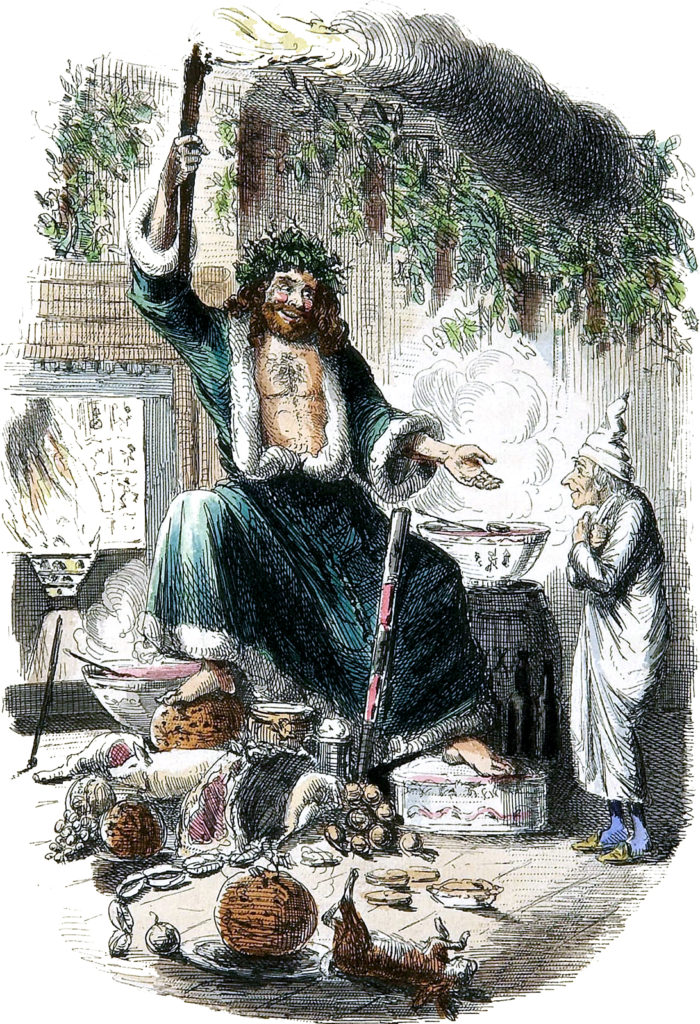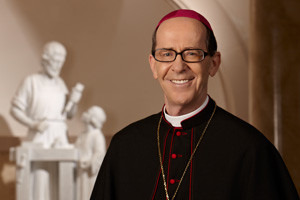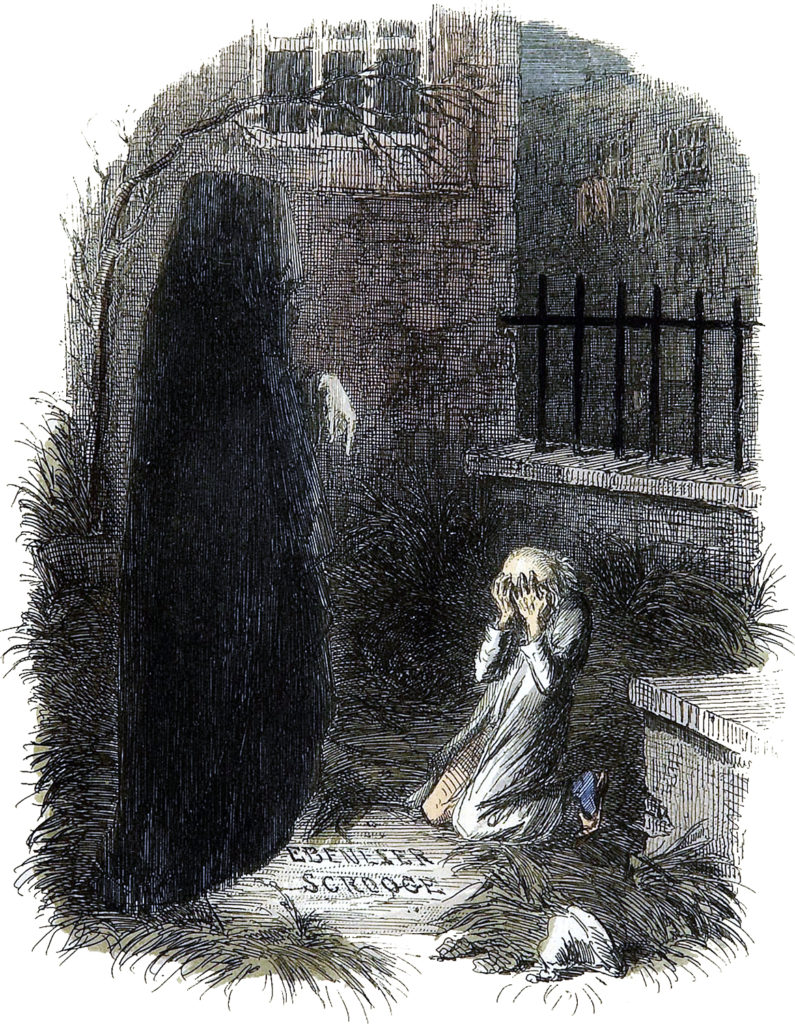
Third in a Series
During this Advent-Christmas Season, we remember Ebenezer Scrooge, the famous protagonist of Charles Dickens’ master literary work, “A Christmas Carol.” He had one goal in life: making lots of money. He had enough money to buy anything this world had to offer. His business was prospering, and he was powerful to the point of being feared. And as the richest man in the city with the biggest mansion, he achieved his goal. In a worldly sense, no one was more successful than he. And yet, no one saw him as a good man. He was blind to the needs of those around him; he was also blind to his own capacity for true goodness.
Like Scrooge, many are lost in life because they don’t really have a clear sense of the goal for which God made them. Many like him mistakenly try to procure an apparent “good” as their life’s goal instead of the ultimate Good.
The Goodness of Creation

Goodness is perhaps the hardest transcendental to define. We use the word good in many ways. Good can be thought of as being valuable, excellent, beneficent, generous and helpful. Common experiences of life such as good food, good company, good music, good art, good weather, good father and anything else which we call good produce positive feelings of well-being, peace, satisfaction and more that make life rewarding.
What, then, is goodness? To define it, let us go to the beginning of the Bible where the word “good” appears for the first time. Genesis 1 narrates the different phases of creation: light to separate from darkness, sky and earth, water and land, vegetation and fruit and finally the sun, moon and stars. And after every phase, God calls His creation “good.” This first use of “good” in Sacred Scripture predicates God’s entire creation. Everything which is good has as its root God’s creative power: “For everything created by God is good” (1 Tim 4:4). According to St. Thomas Aquinas, goodness coincides with being; insofar as a thing fulfills its existence, it is good. However, the goodness of creation is a relative goodness that is nothing in comparison to the absolute Goodness that is God. As the true source and foundation of all good, God is good in Himself. In the absolute meaning of the word, God alone is justly said to be good. Therefore, the standard of Goodness, what makes something good, is ultimately found only in God.
Our desire for the greatest Good

But what is truly good? Let’s return to the Book of Genesis — after God created man, which is the pinnacle of His creation, He affirms that this was not just good but “very good.” Man was “very good” in God’s eyes because he was made in His image and likeness. The sole purpose of his existence was directly connected to God, Who is man’s reason of existence and end. God made us to know, love and serve Him in this life and to be happy with Him in heaven. Considering this truth, all creatures that God created, all things that exist are considered truly good insofar as they aid us to attain our ultimate end: God, who is the greatest Good. Our free will was created to desire all good things in perfect harmony with our most important goal in life, communion with God. Our free will was intended to be a true guide to God, the source of meaning and fulfillment in life. It was supposed to serve like a compass that was always pointing toward God.
Original sin, however, warped that compass of our free will so that we don’t always feel drawn to what is good. We feel drawn, instead, to what is superficially good for us. The evil of sin as the opposite of good entails the use of some creature that is in itself good but is used in a way that is contrary to God’s purpose. No human person will ever purposefully and directly desire evil; rather, we sin under the pretense of goodness. The thief steals because of his attraction to the physical good that he covets. The glutton is overly attached to the good of food, and the lustful pursue a disordered appetite for the God-given good of the marital act. Even spiritual sins, such as pride, are directed in a disordered way to something good like our own self-esteem. When a created good is raised above its level of worth, it can easily become an idol.

A heart turned toward God
We can know what is truly good for us by focusing on our ultimate end, God, who is our highest Good. Goodness requires that our hearts be turned completely toward God. Then, as St. Augustine says, the Love of God will set in order all our other loves. St. Bruno, writing to encourage a friend to forsake the world and dedicate himself to God, wrote: “For what could be more perverted, more reckless and contrary to nature and right order, than to love the creature more than the Creator, what passes away more than what lasts forever, or to seek rather the goods of earth than those of heaven? … For what could be beneficial and right, so fitting and co-natural to human nature as to love the good? Yet what other good can compare with God? Indeed, what other good is there besides God?” (Letter of St. Bruno to his friend Raoul-le-Verd).

So, where can we experience God’s goodness? In the miracle of the Cross. In the Acts of the Apostles, Christ is described as “going about doing good” (Acts 10:38). But the depth of that mystery is found in His death and Resurrection. God’s goodness on the Cross was planted amid much pain, suffering and rejection. Yet goodness, love and forgiveness triumphed in the very heart of extreme malice. The more we experience Jesus’ goodness, the more we will heed His invitation that we imitate Him. Medieval philosophers defined goodness as “Bonum est diffusivum sui,” that is, goodness is diffusive of itself. This holds true for each Christian when we seek to experience the miracle of Jesus’ goodness on the Cross; goodness will lead us from the safe and unpredictable toward sacrifice and the Cross. It is, for each one of us, a defining moment: Goodness is diffusive of itself.
As the story “A Christmas Carol” unfolds, with the help of the Ghost of Christmas Past, Scrooge is given the opportunity to see his life from God’s perspective. He saw the many opportunities for doing good that he had squandered and how many people he had used or ignored instead of loved and helped. Only then did he begin to live a truly good life, a life filled with meaning and joy that he had been yearning for all along. At the end, Scrooge found peace and joy when he imitated Christ’s example giving his wealth away to help those in need, just as Christ gave Himself to us on the Cross as our Savior.
May you and I take a moment each day to reflect on goodness in our lives and to remember that everything which is good has as its root God’s creative power.





